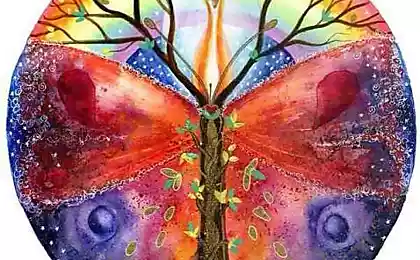184
10 rules that bring happiness

A man decides for himself how to live. And whether he will be happy will largely determine his view of the world, his own expectations and willingness to act. This is evidenced by both spiritual traditions and modern psychology: true happiness is born within, not imposed from without. External circumstances certainly matter, but the end result is the result of the combined influence of our beliefs, habits, and conscious approach to how we organize our lives.
In this article, we will look at ten basic rules that can bring happiness. This is not about giving a universal recipe, because everyone has their own path and set of life tasks. Rather, it is a set of reference points that focus on key aspects, from the ability to appreciate the present to the art of being grateful for simple things. These rules are based on the experience of thousands of people, research by the World Health Organization (WHO) and data from the American Psychological Association (APA), as well as cultural traditions where the search for well-being and inner peace is central.
While studying this material, try not to perceive recommendations as strict dogma, but rather as directions that can be adapted to your character and circumstances. After all, happiness is not a fixed point, but a living process in which we participate.
Main part
1. Accept your uniqueness
The first and perhaps most important rule is to learn to accept yourself as you are, with all the advantages and disadvantages. The desire to meet other people’s expectations is destructive, because we become hostage to convention and cease to pay attention to our own needs.
- Introspection: Understand your values, personality characteristics, habits. Understanding your own uniqueness gives you inner freedom.
- Distance from stereotypes: External pressure – whether it’s fashion, social norms, or the demands of relatives – shouldn’t dictate who you are.
2. Appreciate the present
It sounds like “live here and now.” But in everyday life, we are either preoccupied with past mistakes or anxious about the future. Being conscious in the moment is the key to getting a taste of every moment and enjoying simple things.
- Less regrets: The past cannot be changed, and Ruminations only steal the resource for the present.
- Reduce anxiety levels: Focusing on the present moment eases anxiety about hypothetical problems that may or may not happen.
- Praktika mindfulness: Meditation, leisurely walks, concentration on smells and sounds help to get involved in the here and now more deeply.

3. Free yourself from jealousy and comparison
In the world of social media, we only see other people’s “success” and then feel ashamed of our “normal” lives. But everyone has their own path, and comparison often negates the ability to enjoy what we already have.
- A critical look at social media: Remember that people only share fragments there, often embellished or exaggerated.
- Compare yourself to yourself in the past: This way you can objectively understand whether you are growing in the chosen direction, rather than measuring yourself by other people’s standards.
4. Learn to forgive and let go of offense.
The inability to forgive is a heavy burden that pulls us back. The abuser may long forget about the conflict, and we continue to carry the stone of negativity in the soul. Forgiveness is not a sign of agreement with an action, but a choice to free oneself from destructive emotions.
- Understanding motives: Try to look at the situation through the eyes of another – often resentment arises from misunderstanding or fear.
- A process, not an instantaneous act: Sometimes it takes time and effort to really let go.
5. Create healthy boundaries in relationships
Without personal boundaries, we risk losing our individuality and becoming someone else’s app. Happiness includes being able to say “yes” to your goals and “no” to someone else’s demands if they go against your principles.
- Self-care: Putting others’ needs above your own always and everywhere is a direct path to emotional burnout.
- Honesty: It is important to speak openly about what is acceptable and what is not. Partners, friends, and family need to understand your values and limitations.

6. Be grateful for what you have.
Psychologists note that the feeling of happiness largely depends on the ability to notice the positive in life. We often take for granted health, friends, a roof over our heads. A small practice of gratitude (for example, a diary where we write down 3-5 things for which we are grateful) can significantly change the mood and overall perception of the world.
- Change of focus: Instead of “I’m missing this,” focus on “what resources and opportunities I have right now.”
- Instant positive effect: Many people notice that they become calmer and happier when they begin to regularly express gratitude for small things.
7. Don’t be afraid to try new things and learn.
Happiness is often born where we feel growth and development. New skills, knowledge, travel, dating – all these are “vitamins” for the mind and soul. The fear of the unknown can keep us from making important changes, but it is in the zone of uncertainty that we find new horizons.
- Learn from mistakes: Every attempt, even a failed one, gives an experience that brings you closer to your goals.
- Rejection of "I can't": As APA research shows, people who believe in the ability to improve abilities achieve better results.
8. Maintain a balance between work and rest
The modern pace of life pushes us into a race for success: more projects, more working hours, higher income. However, without the right balance with personal time, family and just doing nothing, we risk burning out and losing our taste for life.
- Plan your vacation in advance: Don’t put off for “someday later”, even a short rest can recuperate.
- Disconnect from the gadgets: Use the time after work for personal matters, avoiding checking email and messengers 24/7.
9. Do not neglect physical activity and healthy eating
Body and mind are more connected than they sometimes seem. According to the WHO, people who follow a mode of movement and proper nutrition are less likely to suffer from depression and cardiovascular disease. Physical education stimulates the production of endorphins - hormones of good mood, and a balanced diet maintains energy and mental clarity.
- At least 150 minutes of light activity per week: Walking, swimming, dancing – choose something that brings joy.
- Healthy diet: More vegetables, fruits, whole grains, less processed sugar and saturated fats.
10. Maintain a close relationship and don’t be afraid to ask for help
A person is characterized by social interaction: the support of friends, relatives, colleagues not only facilitates emotional experiences, but also gives support in difficult moments. Research suggests that having a trusted environment is one of the strongest predictors of high levels of happiness.
- Invest in communication: Sincere conversation, attention, time spent together are “capitals” that pay off with mutual care.
- Ask for help: There is nothing “shameful” about going to a psychologist or friends for advice. By isolating ourselves, we only increase stress.
Conclusion
People choose how to look at this world. You can succumb to negativity, constant comparisons and experiences, or you can consciously “color” your life with meaningful actions and attitudes. The ten rules listed above are neither a strict code nor a magic pill. Rather, they are directions for reflection and conscious practice.
Any of them requires not a one-time “solution”, but regular “training” and reflection. But if you decide to incorporate them step by step into your daily routine—learning to accept yourself, letting go of resentment, giving thanks for little, protecting your personal boundaries, and keeping yourself healthy—you will experience a change in your overall quality of life over time.
Happiness is not just an emotion, but a state that consists of conscious choices made in everyday reality. Each of us has the right to decide what this election will be. The most important thing is not to forget that everyone has their own right to happiness, and it begins with us, with our free decision in favor of openness to the world and love for ourselves and others.
Alpha Men and Omega Men: Why Women Are Better With Omegas
7 Questions: Techniques That Will Help You Make a Difficult Decision























